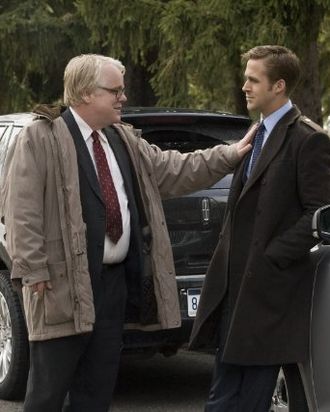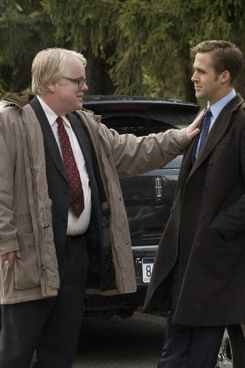

Late at night in his villa on Lake Como, after his latest model girlfriend has nodded off, George Clooney must stare into the darkness and ask himself: “Given how brainy and charismatic I am, shouldn’t I finally run for political office? Or should I continue to try to change the world with my activism and politically progressive movies?” Clooney is likely dramatizing his ambivalence in The Ides of March, which he directed and co-wrote and in which he appears (in a supporting role) as a Democrat in a tight race for the presidential nomination. His Governor Mike Morris is disarmingly fluid at enunciating (in both a debate and a scene with Charlie Rose) many of the worldly, historically engaged, nuanced ideas I’d love to hear from an actual candidate. He professes faith in the Constitution, not religious dogma. He even nails the question that has haunted Democrats since Dukakis wussed out on it in 1988: Sure, Charlie, I’d personally want to bash in the skull of someone who murdered my wife, but a government must be above vengeance, etc. Ruggedly handsome, toasty-voiced, quick on the draw, Clooney’s Morris is a dream Democrat, compelling enough to awaken the idealism of his youngish but seasoned press secretary, Stephen Meyers (Ryan Gosling). But the title clues you in to the movie’s doomsday agenda: to demonstrate the futility of ideals in American politics. Even if you share the view that politics at present is the pits, it’s a stupid, tiresome trajectory.


